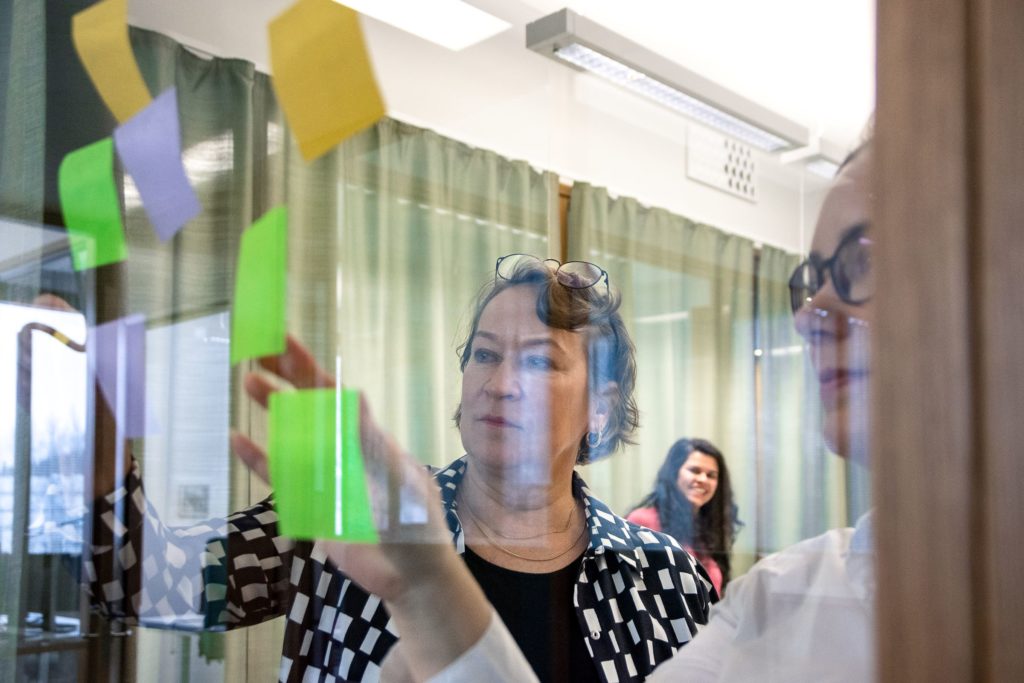1. Higher Education Programme (HEP) Funding
About the funding: Through supporting partnerships between higher education institutions (HEIs) in Finland and in the global South, the funding promotes equitable access to higher education and improve the education system by supporting the institutional capacity and pedagogical practices in HEIs. The funding is supported by Finnish Ministry for Foreign Affairs (funding) with Finnish National Agency for Education (programme administration).
The programme has three main themes:
- High-quality education of primary, secondary and vocational teachers (TVET)
- Climate change, including energy transition and the circular economy
- Food security as an enabler of sustainable development
Who can apply:
- Finnish HEIs together with partner HEIs from the global South. (List of countries eligible since 2023).
- Multi-stakeholder partnerships of HEIs, institutes of technical and vocational training, companies. While non-academic partners cannot receive direct fundings, their costs can be allocated in the project’s budget.
Funding amounts: Maximum of 700,000 euros. Projects between HEIs in Finland and HEIs in a developing country can receive a maximum of 1,100,000 euros.
Timing: In the past, HEP has been an annual call opening every February.
More details: HEP programme – for applicants and Higher Education Partnership brochure
2. Team Finland Knowledge (TFK) Funding
About the funding: TFK supports educational cooperation projects between Finnish higher education institutions and countries in TFK network. The partnership should have at least one HEI from Finland and one from the target region. A project can also involve a non-academic partner such as a company or an association.
Educational cooperation projects can include joint courses, development and implementation of digital teaching, joint/double degrees, and mobility.
Who can apply: Higher education institutions in Finland, China, India, Russia, Southern Africa, Southeast Asia and Latin America
Funding amounts: Up to 80,000 euros towards travel and organisational costs.
Timing: Every year in April/May.
More details: TFK programme
3. Nordic Centre India (NCI) Academic Activity/Collaboration Grant
About the funding: NCI aims to develop and enhance the skills of early career researchers and provide opportunities for academic activities. NCI supports academic activities involving at least two NCI member universities and at least 1 Indian higher education and research institution. The grant supports research projects, conferences, workshops, networking activities and travel.
Who can apply: Doctoral level researchers and above at an NCI member university can apply in collaboration with colleagues at another member university and an Indian HEI.
Funding amounts: Up to 5000 euros.
Timing: Open twice a year.
More details: NCI Academic Activity/Collaboration Grant.
4. Erasmus+ Capacity Building in Higher Education (CBHE)
About the funding: CBHE supports international cooperation projects based on multilateral partnerships between HEIs. It focuses on equity, inclusion, strengthening of systems and capacities at HEIs. The focus of activities and outcomes in CBHE projects must be towards benefitting the eligible third countries not associated to the programme, their higher education institutions and systems.
Various activities can be taken up under 3 strands:
- Strand 1: Fostering access to cooperation in higher education
- Strand 2: Partnerships for transformation in higher education
- Strand 3: Structural reform projects (national authority must be involved in projects under this strand)
The duration of projects under strands 1 and 2 must be between 24-36 months, and projects under strand 3 can last until 48 months.
Timing: Once a year. In 2023, the deadline for submission was 17 February.
Funding amount: Varies from 200,000 1,000,000 euros across the three strands
More details: Capacity Building in Higher Education (Details page 292 onwards.)
5. Research programme and research projects, Indian Council of Social Science Research (ICSSR), India
About the source: ICSSR is a government institution that supports and promotes research in social sciences in India. UGC recognised universities and institutes of excellence can apply to the funding.
About the fundings
5.1 Research programme
About the programme: Studies conducted under research programme are expected to be inter-institutional or inter-disciplinary or multi-disciplinary. They must foster critical understanding of social science research, especially in terms of theory, methodology and policy outcomes. Studies can last for a maximum of two years.
Who can apply: Researchers in India
Funding amount: 17000-36000 euros towards research staff, travel, equipment, fieldwork and publication.
More details: ICSSR research programme.
5.2 Research projects
About the programme: The research must have theoretical, conceptual, methodological and policy implications in the chosen field. Research projects of duration 1-2 years are also funded ICSSR.
Who can apply: Researchers in India
Funding amount: Minor Projects (12 months) have a budget up to 11000 euros. Major Projects (24 months) have a budget up to 28000 euros.
More details: ICSSR research project
6. Educational Research and Innovations Committee (ERIC), NCERT
About the programme: ERIC provides funding to institutions and researchers in India for conducting research in school education and teacher education. Research on education policy, qualitative and participatory approaches, innovations in school education is prioritised.
More details: Educational Research and Innovations Committee
7. Global initiative of Academic Network (GIAN)
About the programme: GIAN is a programme that aims to encourage engagement between higher education institutions in India and internationally. It supports faculty members to develop and deliver joint courses with minimum 12-14 lecture hours over 5 days and maximum 24-28 hours over 10 days. A minimum 60% of course must be taught by a foreign faculty. The programme prefers courses that can be converted to MOOCs.
Who can apply: Central or state universities in India (GIAN member institutes). Also, faculty from universities or research organisations abroad can submit a proposal using this link after receiving an invitation from the host faculty.
Funding amount: 8000 USD for 12-14 lecture hours, and 12000 USD paid for 24-28 lecture hours.
Timing: On a rolling basis.
More details: Guidelines for proposal submission and Global initiative of Academic Network.
Summary
For a summary of the above-mentioned funding sources, you may access this document – Funding Indo-Finnish partnerships. Furthermore, researchers in Finland can understand more about the higher education context in India through this narrative report.
While these funding opportunities are competitive, they provide a platform for researchers and higher education institutions to develop research and development-focused projects and activities on various aspects of teaching and learning. There are also international funding opportunities which can be utilised for research and development activities in education.














